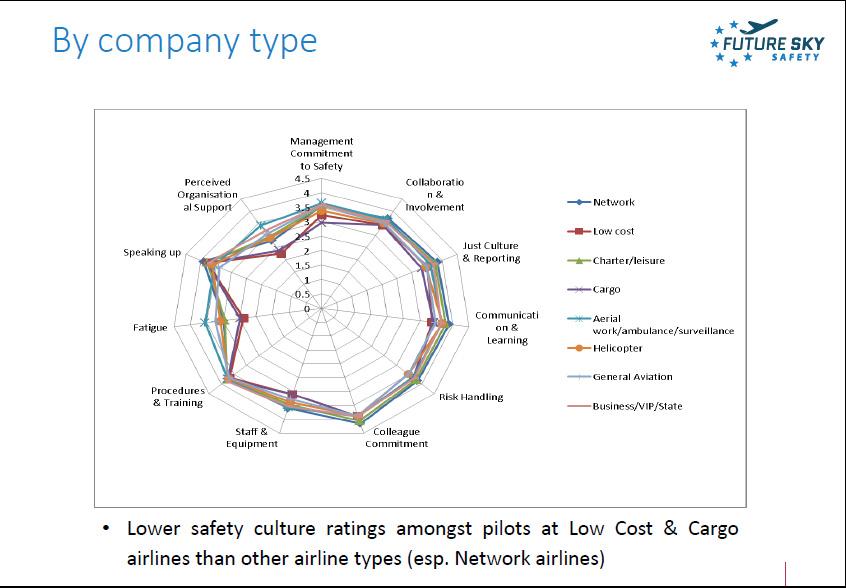

The London School of Economics (LSE) Study – revealing that pilot fatigue is a clear and present concern for European pilots – was one of the most memorable readings in 2016. But there’s much more to that study that remained beyond the headlines – facts and trends about pilots feeling insufficiently trained, lacking trust in national civil aviation authorities, doubting management’s commitment to safety. Such findings are more difficult to be summarised in headlines. Yet, they describe the living reality of European aviation. And it is worth to consider them carefully.
The London School of Economics (LSE) Study – revealing that pilot fatigue is a clear and present concern for European pilots – was one of the most memorable readings in 2016. But there’s much more to that study that remained beyond the headlines – facts and trends about pilots feeling insufficiently trained, lacking trust in national civil aviation authorities, doubting management’s commitment to safety. Such findings are more difficult to be summarised in headlines. Yet, they describe the living reality of European aviation. And it is worth to consider them carefully.
To start on positive note: the study shows that a majority of pilots (79%) do feel confident to speak to their manager if an unsafe situation develops. Equally, they feel encouraged to voice concerns on safety (79%). This is particularly good news! In an industry where speaking up and building a Just Culture environment saves lives, we aim for a 100% score.
Yet, the study reveals a far less positive picture when it comes to trust in the reporting system and the management commitment to safety – only 38% of pilots have a high degree of trust in the management with regards to safety. And while half of the pilots are satisfied with the safety communication flow in the company and receive timely feedback on safety issues, this means that the other half of the pilots are concerned about the communication and feedback.
Disturbingly, pilots also do not believe in the Nation Civil Aviation Authorities’ commitment to safety – only half of the respondents express a positive view on this item. While the study doesn’t give us much explanation as to how and why CAAs have won this “reputation”, it is certainly worth investigating.
Another positive number - 80% of pilots feel that their safety-related reports are treated in a just and fair manner. Overall, this is good news. But when broken down into segments – or type of contract – it appears that pilots flying for Low Cost and Cargo airlines and pilots on atypical employment contracts are far less confident with the handling of safety reports:
This striking discrepancy between Low Cost and Cargo pilots compared to the network carrier pilots is a trend identified throughout the study.
All in all, Low Cost Carriers and Cargo airlines score worse on all 11 dimensions measured by the researchers: management commitment to safety, collaboration and involvement, Just Culture & Reporting, Communication & Learning, Risk handling, Colleague Commitment to Safety, Staff Equipment, Procedures & Training, Fatigue, Speaking up, Perceived Organisational Support. This indicates that airlines’ safety practices may differ according to their business model.

While the LSE study sheds light on the many positive aspects of safety culture in Europe’s aviation, it is also a warning signal to authorities and airline management that many things need to be improved. It is a wake-up call to seek the answers and possibly solutions and to do so in partnership with their pilots.